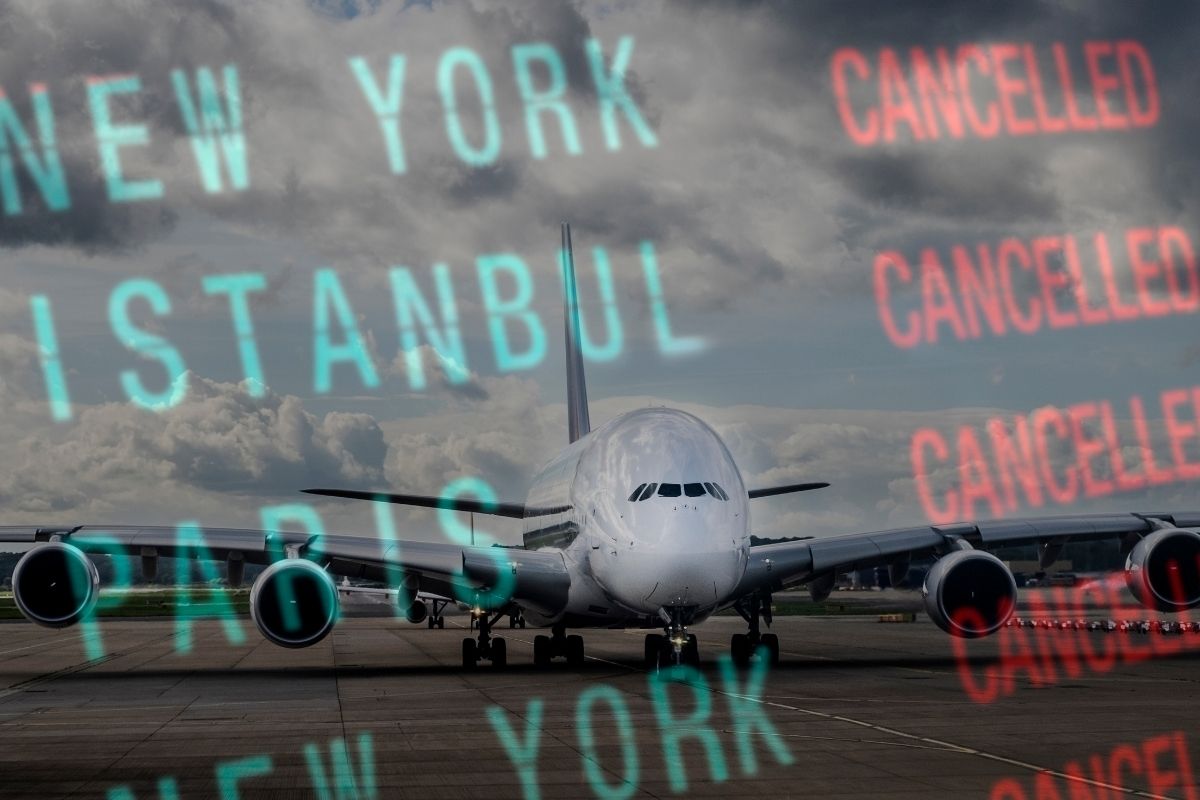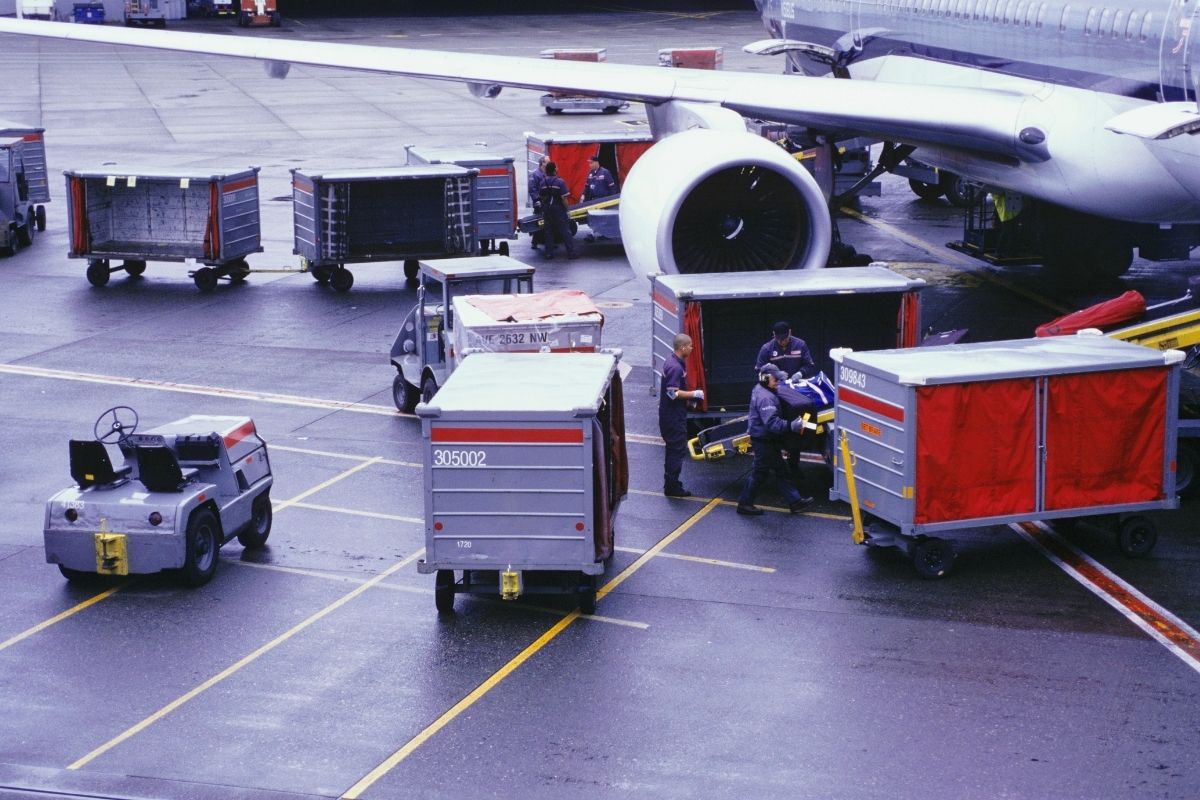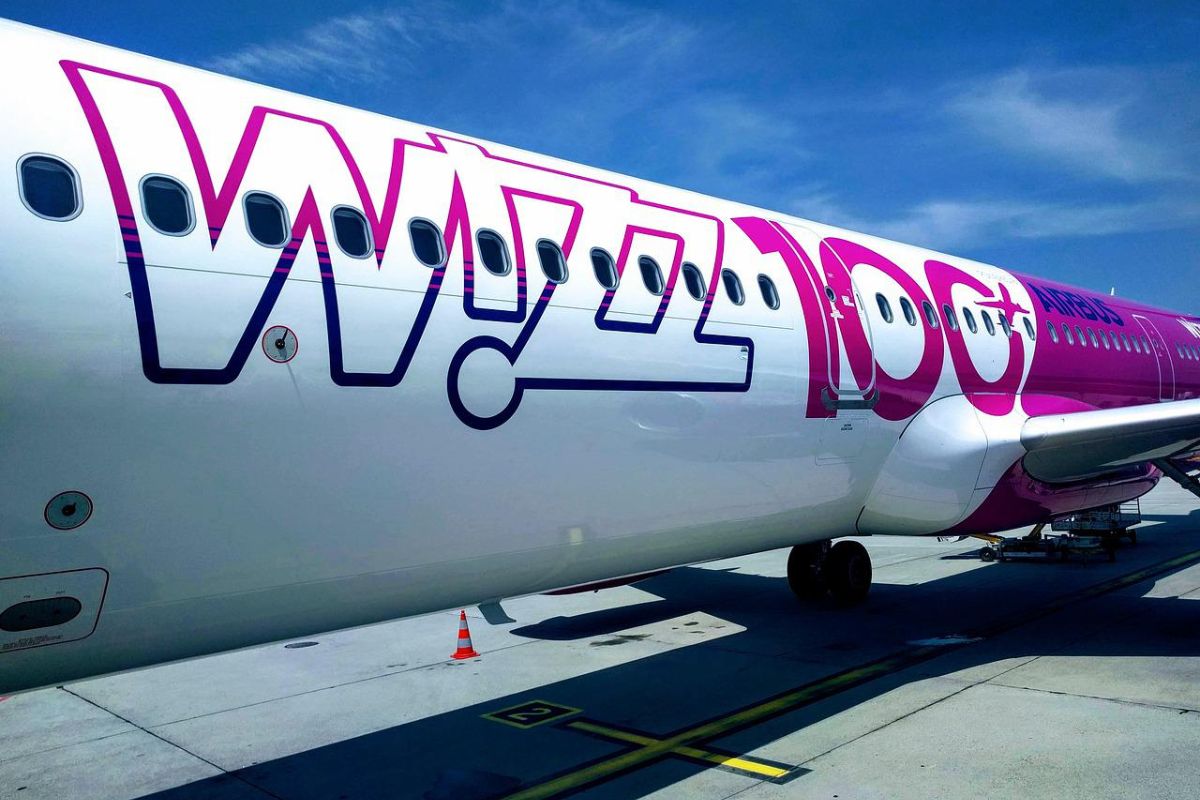UK airports have witnessed scenes of pandemonium in recent weeks, with holidaymakers facing stressful delays and cancellations. The whole aviation industry has been stretched to breaking point by profit-thirsty bosses. Capitalism is to blame.
Recent weeks and months have been a miserable experience for people trying to catch a break abroad.
EasyJet recently cancelled 10 percent of their London Gatwick schedule. Low cost competitor Wizz Air effectively did the same thing at the last minute. Passengers at Manchester airport who had booked through travel agent Tui, meanwhile, found out from police that their long-awaited holidays had been called off.
This isn’t a one-off over the bank holiday, however, but is now a clear pattern – one that will only get worse in the busy summer months.
The chief executive of London’s Heathrow airport, for example, has warned that it could take up to 18 months for the aviation industry to return to pre-pandemic levels.
Fragile system

Distressed holidaymakers are therefore rightly asking: what is going on?
For us as pilots, it can be challenging to explain to passengers why a particular flight is delayed. Often we are forced to resort to vagaries or euphemistic phrases such as ‘operational reasons’. Mentioning the real reasons – such as a lack of crew – is highly taboo.
Getting an aircraft from A to B depends on many moving parts (literally and metaphorically). And it doesn’t take much to upset a very delicate, fragile balance of logistics, especially since there is little-to-no slack in the system.
As a result, air traffic control restrictions are very common during the summer surge, meaning that flights cannot be processed in a safe manner.
But none of this is new. And now a perfect storm of factors are combining to exacerbate this already-broken status quo.
Cheap labour

Some people blame the current mess on Brexit. Amongst these is Ryanair CEO Michael O’Leary – a prominent advocate of providing easier access to Eastern European workers, so that they can be exploited on poverty wages by himself and other airline bosses.
Britain’s departure from the EU no doubt has had an effect on flight operations in the UK. But clearly it is not the main cause of tourists’ problems. After all, equally long queues have been witnessed in Dublin airport, and even longer ones in Schiphol Amsterdam. US airline Delta, meanwhile, has already pre-emptively grounded flights scheduled for July and August.
In reality, the whole infrastructure of the aviation industry is underpinned by cheap labour: from cleaners and baggage handlers, to check-in desk workers, dispatchers, aircraft fuelers, and cabin crew; and increasingly also pilots and air traffic controllers.
All of these roles are necessary for the safe, efficient functioning of an airport. And all of them – to various extents – involve highly exploitative shift work, in a cut-throat environment where margins are small.
Years and years of ruthless competition and profit-seeking by the bosses has led to services and working conditions being cut to the bone – and now into the bone itself.
For many of these workers, COVID has been a wake-up call. And if they hadn’t been sacked or furloughed already, quite a few drew the conclusion during the pandemic that this kind of work is unsustainable. Why get up at 3am every morning to barely even make a minimum wage?
Many are disgusted with the industry, and have resigned on the spot. Combined with mass sackings at many airports and airlines, alongside a post-lockdown surge in demand for air travel, this has led to acute labour shortages.
Pointing the finger
Of course, airline bosses were more than happy to take customers’ money for flights that could not sustainably be provided and put on. Often this money was handed over months in advance.
They knew there was no way they could get the staff in place to actually service and crew the flights for which they had sold tickets.
The Tory government has been quick to point the finger at the airline industry, with transport secretary Grant Shapps – under pressure to address the recent mayhem at UK airports – demanding to meet with aviation bosses.
But the Tories have conveniently forgotten their own role in this debacle.
For years, the government has failed to support the industry. Instead, they have helped to wreck it, through arbitrary rule-making; failing to accelerate security clearance for airport staff; and generally failing to plan for any time horizon longer than the next press release.
Bully bosses

Because of the long and unsocial hours, fatigue is a very real issue in the industry. It is not uncommon for pilots or cabin crew to declare themselves fatigued; unable to perform flight duties due to a lack of rest. This has a real impact on safety standards.
In a new low, in a recently leaked internal address, Wizz Air CEO József Váradi gave a warning to his staff, essentially saying that the company is losing too much money as a result of cancellations caused by crew being too tired to work.
Instead, the airline chief suggested, we should all just pull ourselves together and ‘go the extra mile’.
But as the saying goes: if you think safety is expensive, try having an accident.
‘All in this together’
What can we – as airline workers – do about this all? The first step is to understand what is really going on.
Airline and airport management like to go on about how we are all one big family; how we are ‘all in this together’. But clearly we are not.
Those of us doing the actual work at airports and in the air have no common interest with the bosses and shareholders. Their only goal is generating profit on the backs of us, the workers.
To defend our jobs, pay, and conditions in the face of rampant inflation and the bosses’ attacks, we need to fight for collective bargaining, through the threat and implementation of strike action.
And this, in turn, requires the building of combative unions in our workplaces, and across the industry.
Workers’ control
From a passenger point of view, it is necessary to look at the bigger picture. The current aviation model is completely broken. The whole setup needs to be drastically overhauled.
Reversing decades of privatisation and cost-cutting would be a start. The race to the bottom has to stop. But that means overthrowing the profit-driven laws and logic of the capitalist system that lie behind this.
Aviation is only one small part of the puzzle. Ultimately, the entire transport sector – including air, rail, water, and road travel – needs to be radically transformed, so that it benefits workers, passengers, and the planet.
To achieve this, we must take the whole transport system – along with the other key levers of the economy – out of the hands of the bosses, and instead place these under public ownership and workers’ control, as part of a bold socialist plan.
Only then can we end the chaos, cuts, and crisis facing airline workers and holidaymakers alike.






